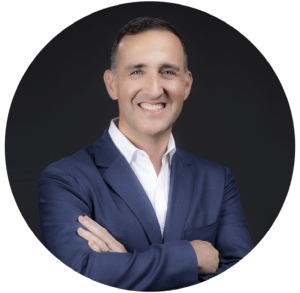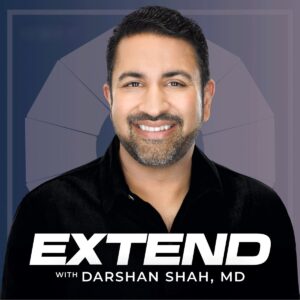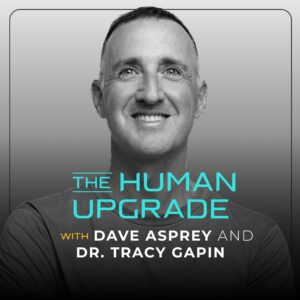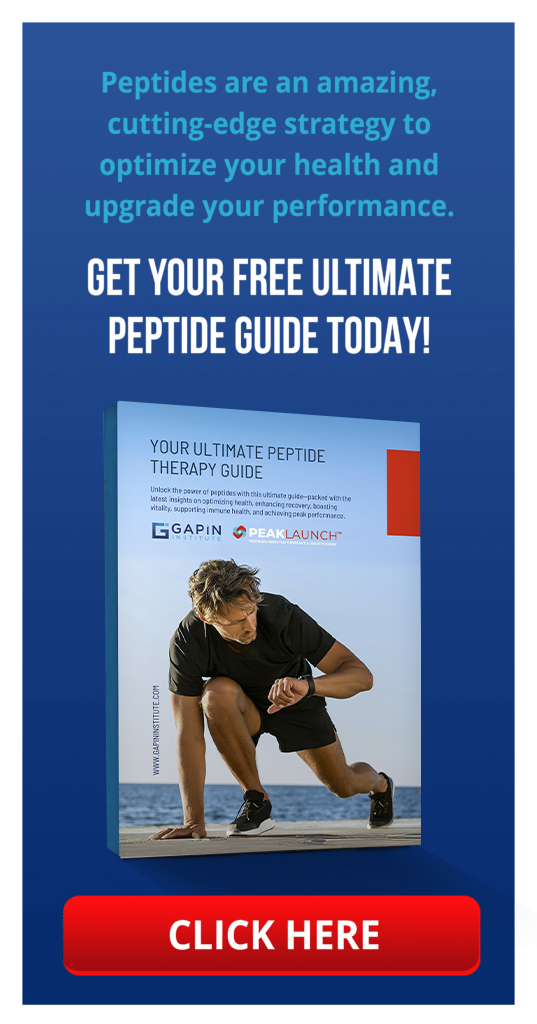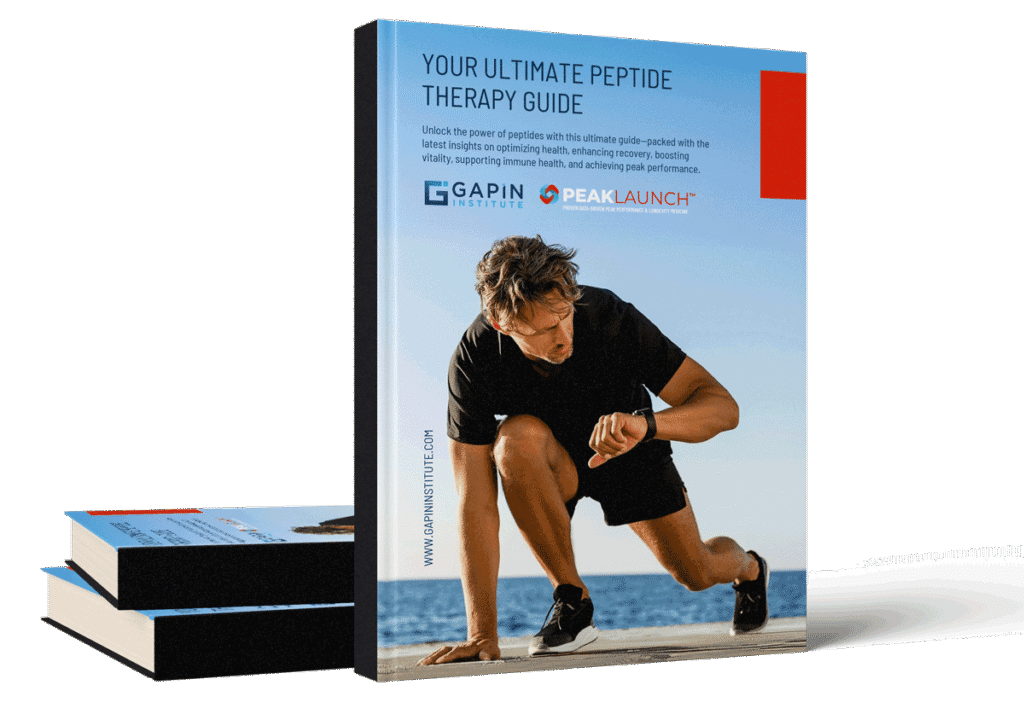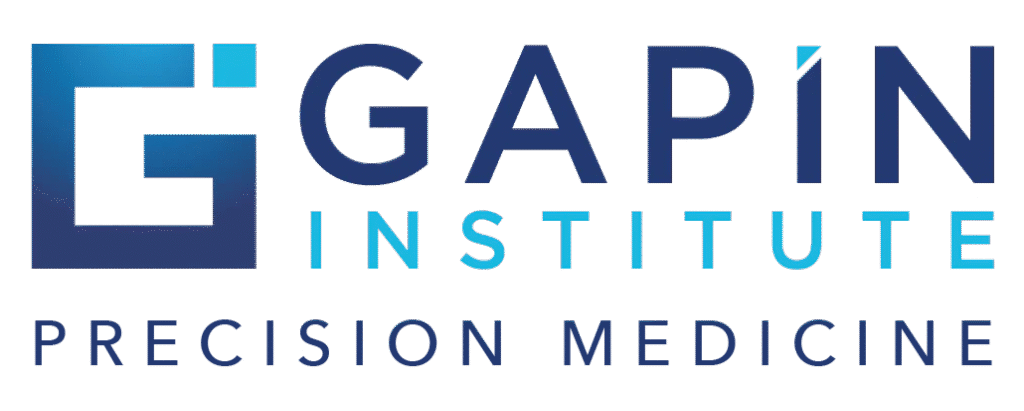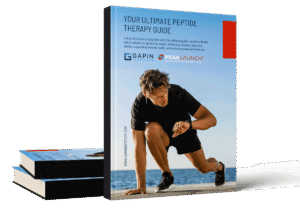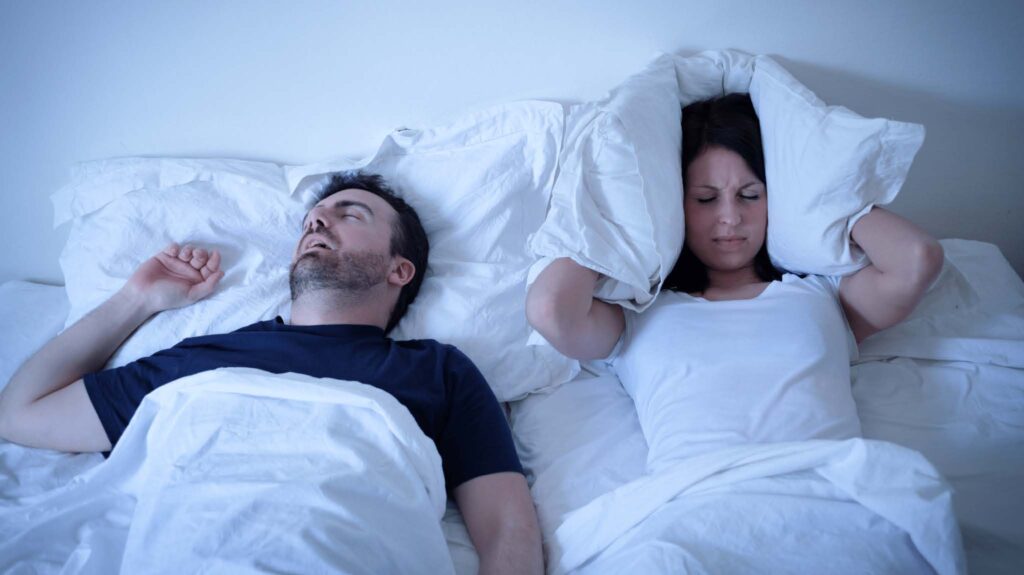
Erectile dysfunction (ED) is one of the most emotionally crippling conditions for men worldwide. So many suffer from the condition and believe they can will their way back to normal. Others believe the situation to be too embarrassing and difficult to raise with their doctor. So I always have tremendous respect and pride for the men who visit me for help.
In my consultations, I often raise the topic of sleep, and I'm not surprised to see a lightbulb go off in some of my patients. Yes, their partner has noticed loud snoring. They've even mentioned choking noises and difficulty breathing during sleep. These are worrying signs of sleep apnea and are often linked to ED.
In this article, I'll spend some time on both conditions, how they overlap, and what you can do to get both under control. Erectile dysfunction (ED) is one of the most emotionally crippling conditions for men worldwide. So many suffer from the condition and believe they can will their way back to normal. Others believe the situation to be too embarrassing and difficult to raise with their doctor.
So I always have tremendous respect and pride for the men who visit me for help. In my consultations, I often raise the topic of sleep, and I'm not surprised to see a lightbulb go off in some of my patients. Yes, their partner has noticed loud snoring.
They've even mentioned choking noises and difficulty breathing during sleep. These are worrying signs of sleep apnea and are often linked to ED. In this article, I'll spend some time on both conditions, how they overlap, and what you can do to get both under control.

Erectile dysfunction is when a man is unable to achieve and/or maintain a satisfactory erection for sex. Even in healthy men, this can occur from time to time. Blood flows into the penis when sexually aroused to achieve an erection. A series of chemicals activate this process along with emotional and physiological triggers. If one or more of these levers are impacted, it will be harder to achieve an erection.
Several factors contribute to ED, including:
- Increased age
- Certain chronic conditions like diabetes and high blood pressure.
- Poor lifestyle decisions like excess alcohol, smoking, poor diet, and drug use.
- Stress, anxiety, and depression
- Cardiovascular disease
- Nerve damage
Sleep Apnea, what's the link?
So how does sleep apnea, particularly OSA, impact ED? Scientists are still trying to get to the bottom of the issue. For now, there's a link between the two conditions. A few reasons come to mind:
1. Sleep apnea affects blood flow.
If you are not breathing correctly, your blood oxygen levels will be severely depleted. Blood goes into our bloodstream via our lungs. That oxygen generates energy for our cells and helps with circulation. Unfortunately, when it's time for you to ‘get it on' with your partner, you may lack the oxygen necessary for strong erections.
2. It impacts your testosterone levels.
Testosterone is the hormone that helps trigger the male sexual response. The majority of your body's testosterone release happens during sleep. In a study of 10 men who went through gradual sleep deprivation from 10 hours down to 5 hours over one week, testosterone levels declined significantly after 5 hours of sleep. Doctors have so far linked decreased endocrine production, sleep apnea, and testosterone.
3. Sleep apnea is linked to stress, anxiety, and depression.
I don't know about you, but when I lack sleep, I'm pretty cranky and not operating at my best. People with sleep apnea are more likely to suffer from stress and depression due to the frustrating lack of sleep. Chronic stress spikes cortisol, which restricts blood flow to the cavernosal spaces in the penis (the parts that fill with blood). Furthermore, the fact that you can't have a healthy sexual relationship with your partner also weighs on you, leading to a cycle of stress, performance anxiety, and depression.
4. Frankly, you're too tired to think about sex.
There's a misconception that guys are always “turned on” and ready to go. While that sounds good in theory, our bodies don't work that way. Men can be too tired for sex. Sleep apnea brings bouts of fatigue and, with it, a lack of interest in sex.
Breaking the link
If you've identified sleep apnea as an underlying factor, it may seem like a Catch-22. Do we treat erectile dysfunction first? Should we tackle sleep apnea, then ED? Is it wise to address both at the same time?
One thing's for sure, ED does not cause sleep apnea, but sleep apnea can lead to severe ED. The more rest and refreshed we are, the better our blood flow, energy levels, and eventually our sexual function. Addressing the underlying causes of sleep apnea may improve ED. Luckily, there is a range of treatment options available.
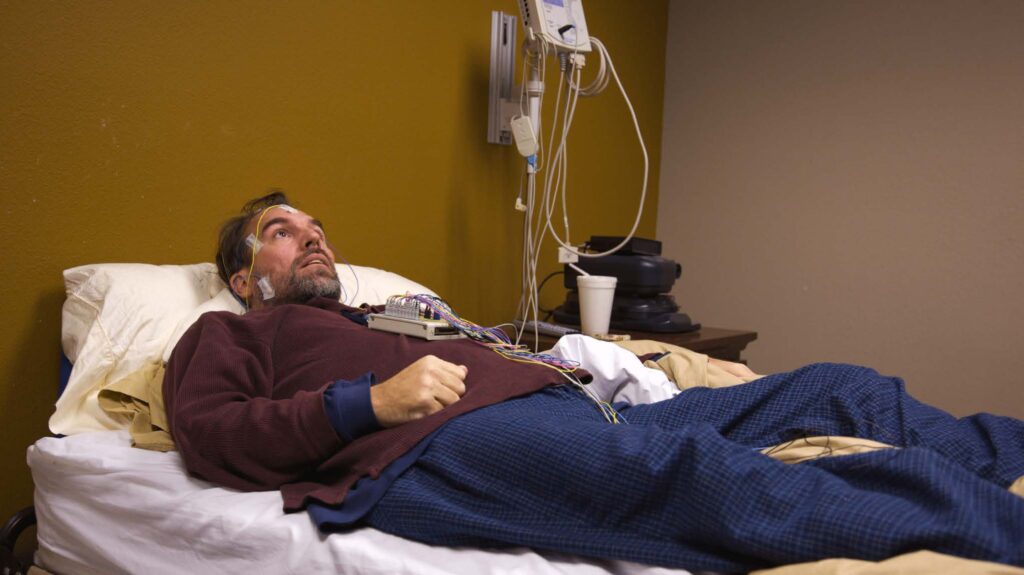
Get a sleep study
Before you begin treatment, you'll need to complete a Sleep Study (polysomnogram). Sleep studies can provide you and your healthcare provider with essential data. In the past, you would have to spend a night at a sleep center or lab connected to a breathing device, pulse oximeter, and other sensors, but now there are sleep study home kits available that are cheaper, more convenient, and more effective.
The test records your brain waves, heart rate, breathing, and blood oxygen levels. The test may also track your REM sleep and body movements. After collecting the data, a sleep doctor can advise on the best treatment options available. Treating your sleep apnea starts with making some lifestyle changes to improve your overall health and wellness.
1. Focus on weight loss
Obesity is one of the primary causes of obstructive sleep apnea. Excess fat deposits around the neck and torso may be affecting your ability to breathe at night. So a key strategy for overcoming sleep apnea is weight loss.
- Lose some pesky pounds by boosting your metabolism. Avoid processed foods, and refined sugars, and eat a protein-rich diet. Remember to balance your macros to include healthy fats, whole grains, and leafy greens.
- Try strength training, particularly High Intensity Interval Training (HIIT). HIIT involves performing compound exercises (think squats, push-ups, boxing, or kettlebell swings) with longer rest periods. Start with 30 minutes a day for at least three days per week.
- Be consistent. It's easy to fall back into bad habits, especially if you do not see immediate results. Remind yourself why you're doing it as often as possible.
According to the Sleep Foundation, losing just 10-15% of your body weight can improve OSA by up to 50%.
2. Skip the alcohol before bed
Scientists have long advocated that a glass of red wine can help stimulate melatonin release for a better night's sleep. A couple of glasses right before bed can end up exacerbating your sleep apnea. But it's all about volume and timing.
In general, although alcohol seems to be a great sedative, alcohol intake in the evening actually crushes sleep quality. Also, alcohol relaxes the muscles around the airways, making it more likely for you to develop apneic episodes. You'll struggle to wake up, making the symptoms the next day more severe.
3. Quit smoking as soon as you can.
Smoking can cause inflammation in the airways and improve the chances of respiratory illnesses. Kicking your smoking habit is easier said than done, but both smoking and sleep apnea is linked to decreased lifespans. Get as much support as possible from friends, family, and doctors to build the habits you need to ditch those sticks.
4. Sleeping pills can make things worse.
It's a common assumption to take sleep medication to help with your sleep apnea. While, in theory, it makes sense, some sleep aids can make OSA worse. Sleeping pills not only relax your muscles but make it more difficult for you to wake up.
A relaxed airway makes it more likely to collapse or become obstructed. Since you can't wake yourself up because of the sleeping pills, you'll have more severe side effects when you do wake up to get your day started.
Consult your family doctor or sleep practitioner to review all the prescription and non-prescription sleep aids you're taking. If these are making your OSA worse, your doctor can come up with viable alternatives.
5. Change the way you sleep.
Sleeping on your back causes the tongue and soft tissue in your throat to obstruct your air passageways. The supine position is popular with most people with sleep apnea, and they often wake up choking or gasping for air.
Sleeping on your left side or your stomach provides optimal oxygen flow during sleep. A study of 52 patients with OSA revealed that elevating your head decreased the episodes of OSA, so invest in a wedge pillow or memory foam specific to sleep apnea.
6. Start working on self-care techniques.
Taking care of your mind and emotional well-being is just as important as improving your body. At this point, you're dealing with the stress, fear, and anxiety of sleep apnea and ED. That would take a toll on the best of us.
If you're more stressed, cortisol production could have an indirect effect on your sleep apnea. Practicing mindfulness, some yoga, surrounding yourself with uplifting people, exploring nature, and even journaling can positively impact your sleep apnea in the long term.
Try these other solutions.
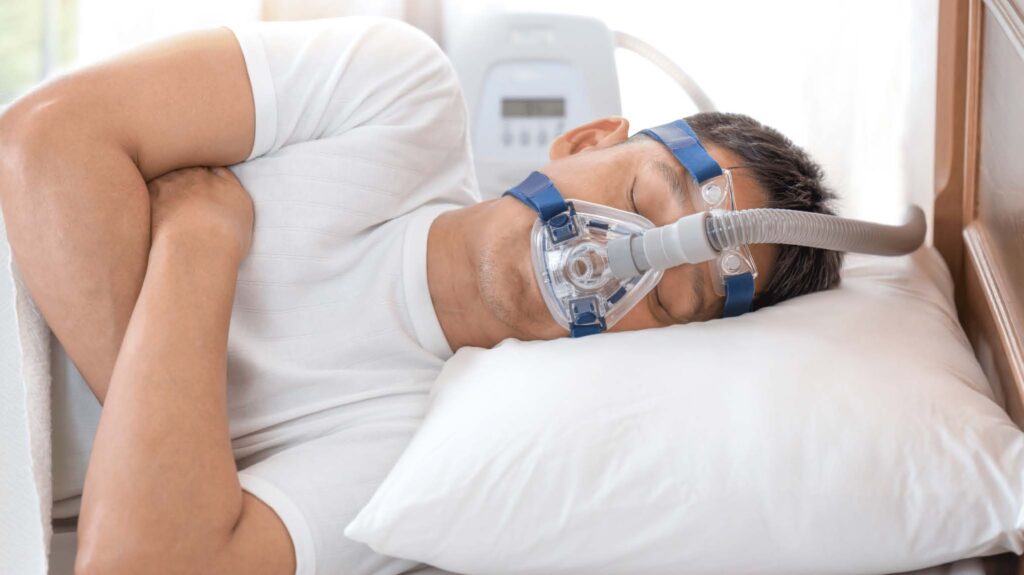
Here are some other options to fix the physiological reasons behind your sleep apnea:
- A Continuous Positive Airway Pressure (CPAP) machine is one of the best therapies for OSA. Before you sleep, you'll fit a breathing mask attached to a special device. The machine sends pressurized air through the passageways while you sleep, reducing snoring and sleep apnea episodes.
- Allergies, constant throat infections, and tonsil infections can cause sleep apnea. Speak with an allergist or family doctor for medication to treat your allergies.
- An ENT doctor can prescribe oral devices to maintain a clear passageway.
- Surgery might help. This includes removing your adenoids, removing excess tissue at the back of the mouth, or realigning your jaw.
Working on your ED
Getting your sleep apnea under control will increase your oxygen levels and blood flow, which should improve your ED. Ironically, stopping ED in its tracks would require similar lifestyle changes I recommend that target your sleep apnea (exercise, dietary changes, and reducing alcohol). Beyond that, here are some other ED remedies that I recommend to my patients.
1. Try HRT
Hormone Replacement Therapy (HRT) seeks to restore testosterone and other hormones to treat ED. HRT can also improve energy levels, muscle development, and overall vitality. You'll get treatment in the form of pills, creams, patches, or injections. For men with mild cases of ED, HRT can be very effective.
2. Medication can help
There's a reason why Cialis and Viagra remained popular all these years. Both medications are quite effective. If you're a candidate for these drugs, you will see an almost immediate improvement in your ability to achieve and maintain erections.
Medication treats the root cause by improving nitric oxide production and allowing the blood vessels in the penis to relax. As a result, men should experience longer, harder erections.
3. Biologic therapy is on the rise.
I've been bullish on the benefits of biological therapy in sexual function. Platelet-rich plasma (the P-shot or PRP), for instance, uses your body's platelets which helps with blood clotting after injury. These platelets also contain growth factors that help reduce inflammation and encourage healing. To complete the P-shot, we take a blood sample and place it in a centrifuge. The machine separates the platelets from the plasma and red blood cells. We then inject the concentrated platelets (with a bit of plasma) into your penis. Over time, PRP may improve the symptoms of ED.
5. Medical devices can help.
In severe cases, you may need a physical device to help you achieve and maintain an erection. Some common devices include penile implants, vacuum pumps, and special suppositories with medication. Each must be used correctly, as directed by a doctor, to avoid injury or unwanted complications. Soundwave treatment, like the Gainswave, can send pulses to the penis to encourage blood flood and blood vessel growth. This therapy happens over several sessions as prescribed by your doctor.
6. Let's talk about it.
Medications and other devices can help, but they’re sometimes ineffective if you have a mental block about ED and having sex. Learning how to overcome ED through counseling is an effective, long-term solution. Both patient and partner could try sex therapy to improve communication both in and out of the sack. Both OSA and ED could be a sign of something deeper, so I also recommend screening for cardiovascular disease.
Take action. Your sleep and sex depend on it.
Sleep apnea and ED are no longer a coincidence. Obstructive sleep apnea, in particular, reduces the oxygen in the blood, impacts testosterone production, and increases fatigue. Over time, these symptoms overlap with your sex life, which can lead to ED.
If you're struggling with ED, check to see if sleep apnea may be an underlying factor. Let’s get it under control so you can sleep better and enjoy amazing sex!
Links/References:
https://www.ncbi.nlm.nih.gov/pmc/articles/PMC6082539/
https://pubmed.ncbi.nlm.nih.gov/23589584/
https://pubmed.ncbi.nlm.nih.gov/19570042/
https://my.clevelandclinic.org/health/diseases/14510-nocturia
https://www.ncbi.nlm.nih.gov/pmc/articles/PMC4445839/
https://www.sleepfoundation.org/sleep-apnea/weight-loss-and-sleep-apnea
https://www.ncbi.nlm.nih.gov/pmc/articles/PMC5700252/
https://uroweb.org/wp-content/uploads/Haahr-press-release-FINAL.pdf
https://drtracygapin.com/high-intensity-interval-training/
https://drtracygapin.com/mens-health-guide-to-boost-your-metabolism/
https://drtracygapin.com/manage-ed-with-cutting-edge-science/

